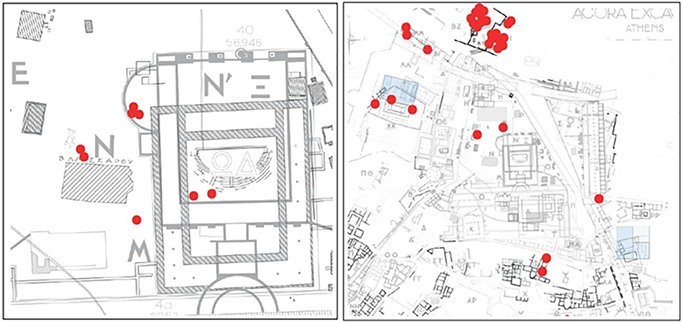Commodities of Pleasure: Case-study Coffee
Evidence for coffee consumption comes in the form of certain types of ceramics: Kütahya and Iznik Wares, Chinese porcelain, and various European imports. onwards. Coffee was consumed in private houses, but more commonly in coffee houses. It was served in small cups, similar to the ones still in use today in various countries.
A handful of late 18th and 19th-century decorated Kütahya Ware coffee cups were found in and around the central portion of the agora, as well as among refuse in various Ottoman pits and wells.
Inferences as to the consumption of coffee therefore remain limited, and – unfortunately – do not go beyond merely affirming such practices from the late 18th century.





An example of Iznik ware from the British
Museum (www.britishmuseum.org).
A second example of Iznik ware from the
British Museum (www.britishmuseum.org).
An example of Kütahya ware from the
British Museum (www.britishmuseum.org).
Another example of Kütahya ware from the
British Museum (www.britishmuseum.org).
4 - 4
<
>


Athenian agora: distribution of Kütahya Ware coffee cup fragments (left); distribution of chibouk bowl fragments (right) (www.agora.ascsa.net)
NEXT
BACK
HOME